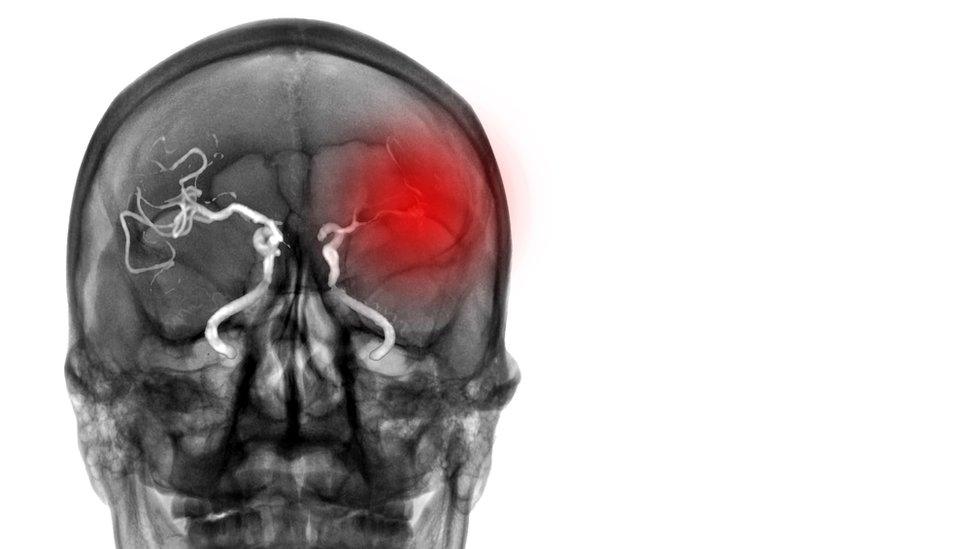Stroke patients learning poetry to aid recovery
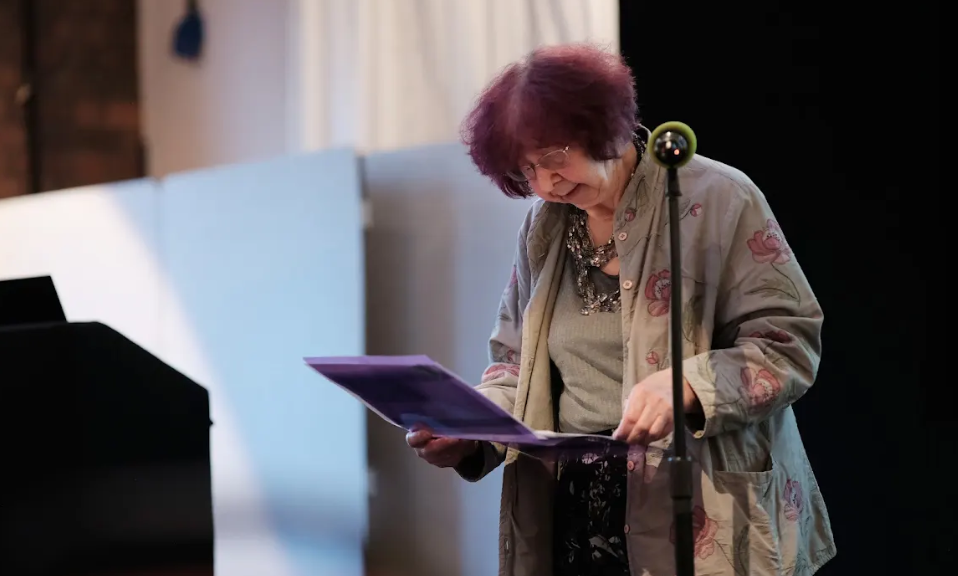
The poetry created at the workshops was performed live at Lyra, Bristol's annual poetry festival
- Published
Stroke patients with the communication disorder aphasia are learning poetry to help aid their recovery.
The language disorder makes it difficult for people to speak and understand others and is often the result of a stroke.
According to the charity, Bristol After Stroke (BAS), poetry can be "an alternative way of getting messages across".
"It's a bit counter-intuitive for people with aphasia," said speech therapist Sarah Woodward, "but it worked".
BAS was funded by Lyra, Bristol's annual poetry festival, to run two poetry workshops for those living with the condition.
The project was led by speech and language therapists, supported by published poet Hazel Hammond, who herself had a stroke four years ago.
According to BAS there are an estimated 12,000 people in Bristol and South Gloucestershire who have had a stroke.
About a third of those have aphasia, which is a common disorder following a stroke where language areas in the brain become damaged.
The condition can make it difficult for people to speak, read, write, use numbers and understand others .
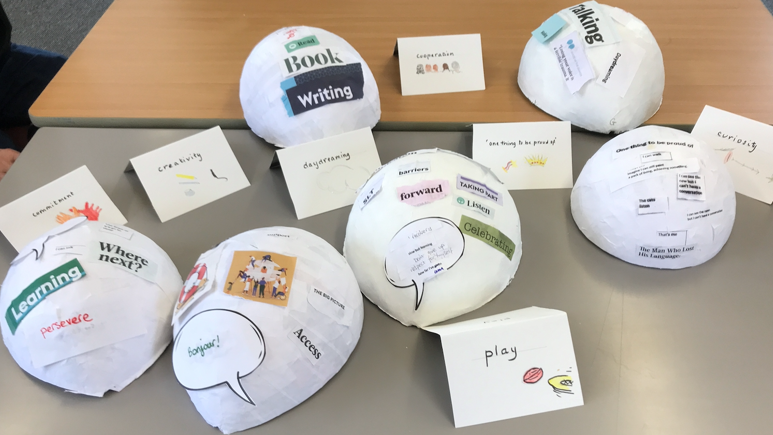
Participants made papier mache masks to stick their words on in the process of creating poetry
Ms Hammond, from Easton in Bristol, said she was "absolutely devastated" to find that following her stroke she was no longer able to write, read, or even speak very clearly.
"I thought my brain is broken, how am I going to manage a broken brain," she said.
With the help of BAS, she has channelled her talent into other creative arts and now draws and sculpts to express herself.
After securing funding from the Lyra Poetry Festival for the poetry workshops, the charity enlisted Ms Hammond to inspire others to start writing, even though she is unable to write herself now.
Ms Hammond explored poetry in a different way, shuffling pictures, words and sentences around.
"It's quite complicated. We talked about themes such as being proud of yourself.
"We made notes about what we said in pairs, then moved around the group and made more notes," she added.
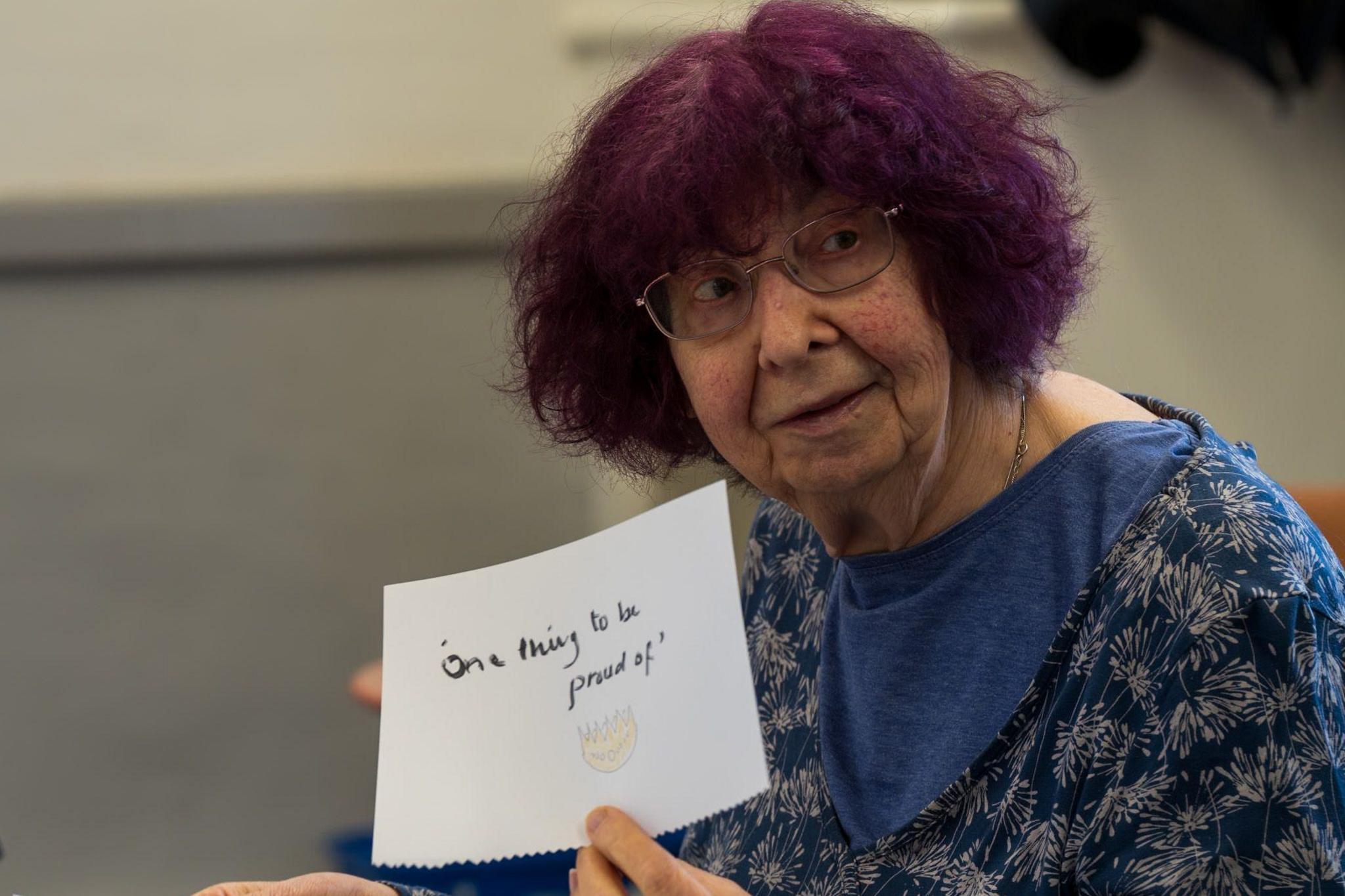
Hazel Hammond urges others living with aphasia to express themselves through writing poetry
Expressing yourself
One participant said: "You have to learn to work with what you've got." And another added: "It's not a question of being unable to do something, but that you just do things differently."
Ms Woodward, said: "Anything creative is really helpful to people with aphasia because you don't always need words.
"It's a nice, alternative way of getting messages across and communicating who you are, your identity, what you love and your frustrations.
"People were saying, 'but I can't read, and I can't write, and I can't speak very well, how on earth am I going to make poetry?'
"Through the workshops and Hazel's great work, they realised they could."
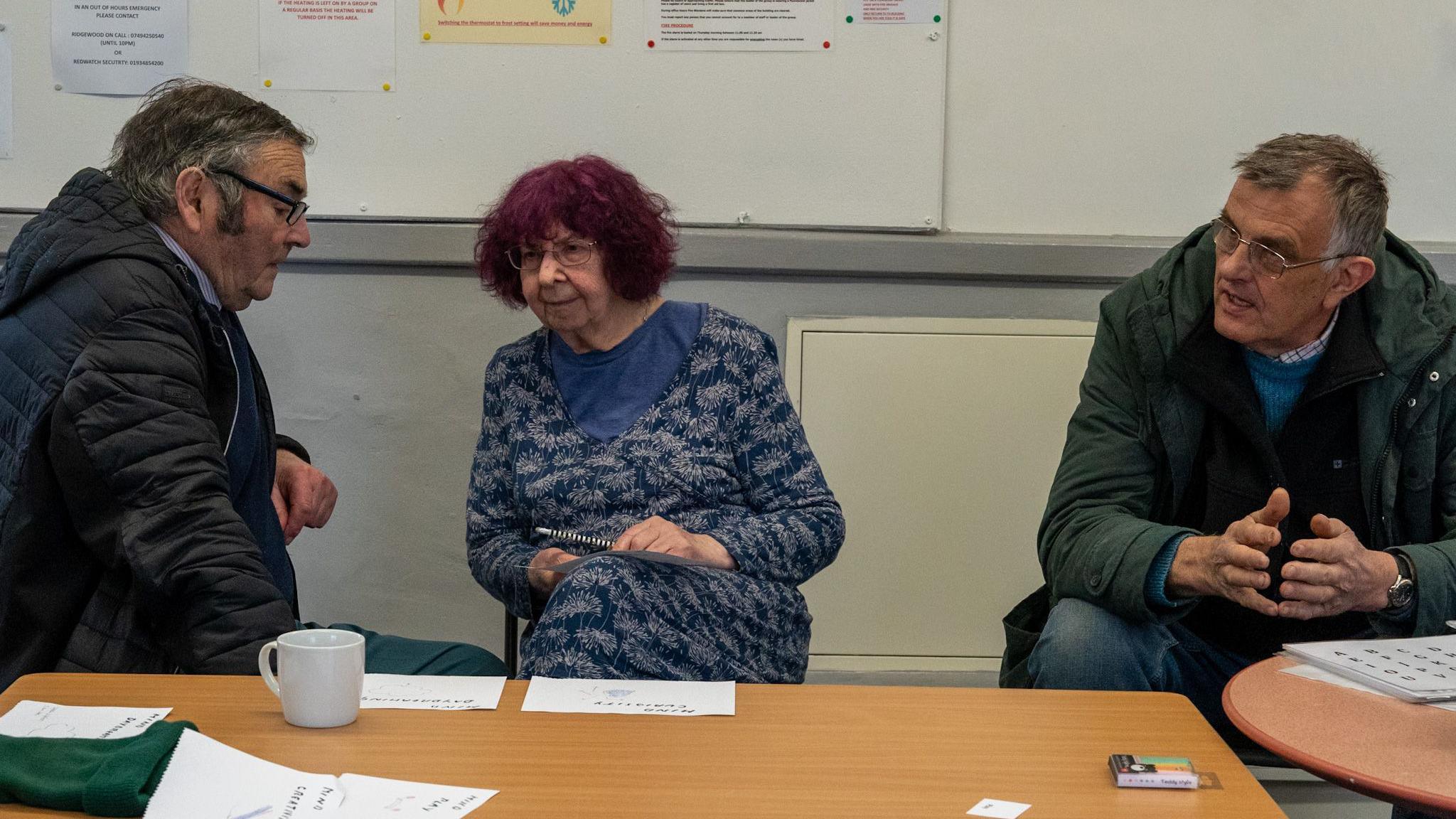
Ms Hammond suggested participants think of one thing they are proud of to aid the creative process
Rebecca Sheehy, BAS CEO said: “There is something very powerful about using poetry to support people to express themselves after stroke-related aphasia."
The poetry was performed by participants at the festival's closing showcase on 21 April.
- Published18 October 2023

- Published19 May 2023
